South Africa
Patrick, a premature baby was saved by a breast milk bank in Cape Town
His mother, Annerleigh Barlett, wasn’t producing her own milk yet and using formula can damage the intestines of premature babies.
“It was a question of life and death because of the fact that he could not go on formula,” said Bartlett.
So for the first two weeks of his life, Patrick relied for his survival on breast milk donated by anonymous women.
Women in South Africa are saving the lives of thousands of babies by donating their breast milk in a country where the infant mortality rate is very high.
South Africa’s infant mortality rate was 32.8 deaths per 1,000 births in 2013 – far higher than countries such as Egypt, Algeria or Indonesia.
Low breasfeeding rates
South Africa has the lowest breast feeding rate at just 7.4 percentage, partly as a result of prevalent poverty and the effective marketing by baby formula companies.
This largely contributes to the deaths of the most vulnerable members of the society.
Soon after having their babies, many poor mothers need to get working again.
“Many of these moms are not employed in the formal sector. They don’t get maternity benefits,” said Chantell Witten, researcher at the North West University Center of Excellence for Nutrition in South Africa.
“It means that moms are not with their babies, so they start formula feed. These babies don’t get the right formula because moms can’t afford to feed adequately and appropriately,” Chantell added.
Breast milk banks are increasing in South Africa: https://t.co/9bTF9qU7Mp pic.twitter.com/sovb2jCFGy
— SouthAfrica.info (@SA_info) November 2, 2015
According to the United Nations Children’s Fund, UNICEF, children who are exclusively breastfed are 14 times more likely to survive in the first six months of life than formula-fed children.
To resolve the situation, about 44 milk banks have been set up to supply milk to 75 to 100 hospitals around the country.
The principle of breast milk reserves is simple: mothers donate milk which is tested, pasteurized, then delivered to babies in need. The milk also undergoes strict microbiological screening and donors must take AIDS and Hepatitis B tests.
The breast milk banks reshaping South African attitudes http://t.co/UJtJTMOfaq #SouthAfrica
— Development Pros (@GuardianGDP) September 15, 2015
“Every a drop counts,” said a poster at the headquarters of the South African Breastmilk Reserve (SABR), a network of milk banks which supply 87 hospitals and feeds over 2,800 children.
Until 2011, formula was distributed for free to prevent transmission of HIV from mother to child, another factor leading towards a bias to using formula over milk.
But experts say attitudes towards breast milk are changing.
Baby formula advertisements have been banned in magazines and billboards since 2012 and South Africa now encourages HIV-positive mothers to breastfeed as long as they are taking antiretrovirals.



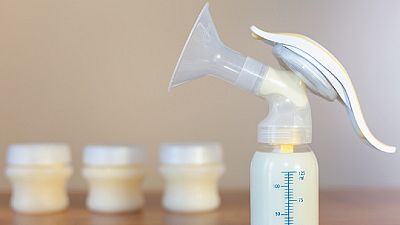

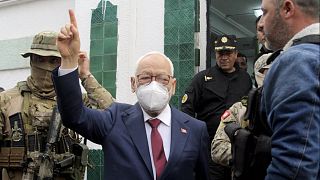
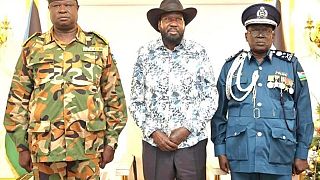
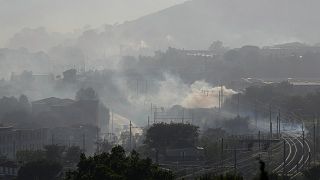

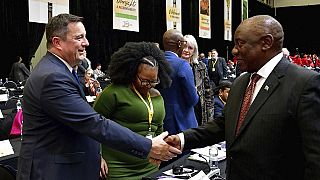


01:49
BRICS summit ends on health issues and role of global south countries
Go to video
Former South African deputy president David Mabuza dies at 64
00:50
Ons Jabeur retires from Wimbledon Opener due to breathing issues
00:56
South Africa: At least 101 dead in Eastern Cape floods as rescue efforts continue
Go to video
African gut study reveals urbanization threatens microbial diversity
11:15
AI drones lead breakthrough against malaria in Africa [Business Africa]